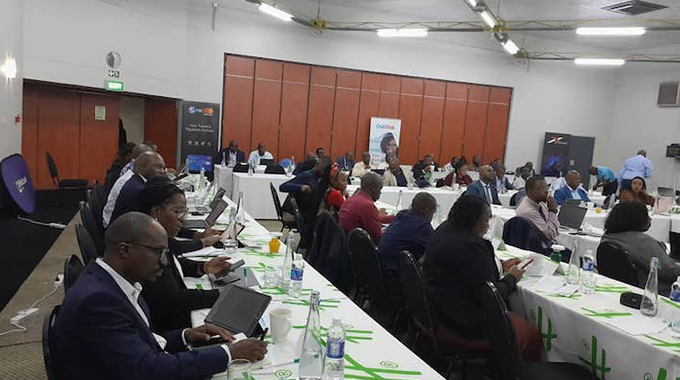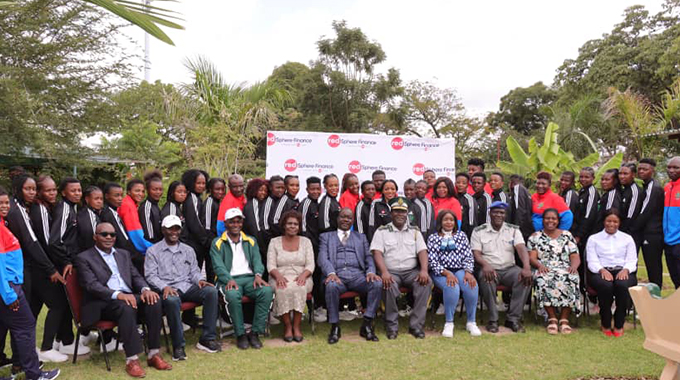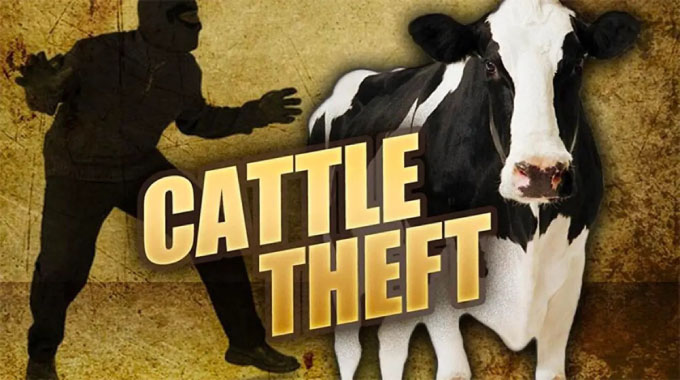President declares drought State of Disaster

Mashudu Netsianda, [email protected]
PRESIDENT Mnangagwa yesterday declared the El Nino-induced drought a State of Disaster, saying adequate resources will be mobilised and re-directed towards boosting national food security, including through supplementary grain imports as part of mitigation measures.
El Niño is a natural weather phenomenon characterised by disrupted wind patterns that lead to elevated ocean surface temperatures in the eastern and central Pacific. This climatic event can have far-reaching impacts on global weather patterns, affecting everything from rainfall distribution to tropical cyclone activity.
Most provinces in Zimbabwe have experienced crop failure since November, with hotter areas declaring grains such as maize a writeoff, leaving most families in need of food aid.
Humanitarian agencies including the World Food Programme, which fed 270 000 people between January and March in four districts, have described the hunger situation as “dire”, calling on donors to provide more aid.
The declaration of a State of Disaster will trigger resource mobilisation efforts on a huge scale targeting all stakeholders including those in the diaspora, the United Nations family, the international community and the private sector among others.
El Niño-related climate variability is one of the strongest drivers impacting agricultural production in Southern Africa. It is usually characterised by above-average temperatures and below-normal rainfall during the November-April season. The region is experiencing extremely dry conditions during the 2023/24 El Niño season, including one of the driest Februarys in over 40 years, resulting in widespread crop failure across central parts of the region. According to a recent report by the United Nations Office for the Co-ordination of Humanitarian Affairs (OCHA), Angola, Botswana, DRC, Malawi, Mozambique, Namibia, Zambia and Zimbabwe received the lowest rainfall for the late January/February timeframe in at least 40 years.

“The foregoing situation of the climate change-induced drought requires measures and interventions as provided for in our laws. To that end, I do hereby declare a nationwide state of disaster due to the El Nino-induced drought. Accordingly, I now invoke Section 27 (1) of the Civil Protection Act, Chapter 10:06,” said President Mnangagwa in his address to the nation.
“By this declaration, I also call upon all Zimbabweans of goodwill, including those in the diaspora, the international community, United Nations agencies, development and humanitarian partners, international financial institutions, the private sector, churches and other faith-based organisations, as well as individuals to generously donate towards ameliorating this state of national disaster.”
The drought in Southern Africa has reached crisis levels with Botswana and Angola to the west, and Mozambique and Madagascar to the east also facing hunger.
Neighbouring Zambia and Malawi, which have also been affected by the El Nino weather phenomenon, which left millions of people in need of food assistance, declared a State of Disaster in February and March respectively.
President Mnangagwa said the country requires over US$2 billion towards various interventions envisaged in the spectrum of the national response.
“The current agricultural season of 2023 to 2024 has not performed according to expectations due to the El Nino-induced drought. As a result, more than 80 percent of our country received below-normal rainfall,” he said.
“The country had put a total of 1 728 897 hectares under maize crop and other cereals, which ordinarily would have guaranteed a bountiful harvest.
“Further worsening the situation characterised by poor rainfall was the outbreak of fall armyworm across the country.
“While we have been able, so far, to fend for this food insecure population, the El Nino drought has now compounded our current situation, with food insecurity levels raised beyond the projected 2,7 million.”
According to the Zimbabwe Livelihoods Assessment Committee report for 2023, about 2,7 million people were expected to be food insecure from April last year until the end of March this year.
The President said following the Government’s multi-pronged Agricultural and Food Systems Strategies, the nation was ordinarily capable of feeding itself.

Mr Moffart Ndlovu shows his drought ravaged crop at Nkosikazi area in Nkayi District, Matabeleland North
The country’s strategic grain reserve (SGR) holds 189 568 metric tonnes of cereals comprising 145 604 metric tonnes of maize and 43 964 metric tonnes of traditional grains.
President Mnangagwa said Government resolved to allocate 138 905 metric tonnes of surplus wheat towards the SGR bringing the total to about 356 000 metric tonnes of cereals.
“We expect 868 273 metric tonnes from this season’s harvest hence our nation faces a food cereal deficit of nearly 680 000 metric tonnes of grain. This deficit will be bridged by imports and measures to encourage the private sector participation, in this regard, are already in place,” he said.
“Top on our priority is securing food for all Zimbabweans. No Zimbabwean must succumb to, or die from hunger.
“Adequate resources will, therefore, be mobilised and re-directed towards national food security, including through supplementary grain imports.”
The President said all available grain in the country will be secured through competitive prices and prompt payment towards encouraging farmers to release and sell available grain, including to the Grain Marketing Board (GMB).
He said a robust and responsive mechanism has been put in place to guarantee that food reaches needy communities timely.
President Mnangagwa said this year’s winter crop programme now assumes added importance and urgency.
“The shift to wheat-based food security means the land we put under wheat from this month must expand to cover all available irrigable land with secure water sources. Equally, winter maize projects in areas such as Chiredzi, Muzarabani and Binga, must be reactivated towards drought mitigation,” he said.
He said the agriculture mechanisation and modernisation programme will continue until the majority of smallholder farmers upgrade their operations in line with the Second Republic’s ongoing Rural Development Agenda.
President Mnangagwa said the Government will continue to roll out comprehensive interventions to ensure that drinking water is enough for people, livestock and wildlife.
“Linked to food security is water security at household, community and national level. Safe water sources which are drying up in many areas have been replaced through an accelerated exploitation of our ground water,” he said.
“More boreholes continue to be drilled under the Presidential Borehole Drilling Programme to ensure adequate water, sanitation and hygiene to avert water-borne diseases including cholera, typhoid and dysentery.”
President Mnangagwa said the Government will also give equal priority to saving livestock in the wake of depleted pastures.
He said farmers will be supported to prevent deaths or distress sale of livestock, adding that the rebuilding of the country’s national herd will continue despite the drought. The Government has set a target of growing the national herd by 100 percent from the current 5,6 million to 11 million by the year 2030.
Under the Second Republic led by President Mnangagwa, the livestock value chain has been identified as a key pillar of the agriculture sector
President Mnangagwa noted that the country’s hydro-power generation capacity has drastically reduced, thereby increasing reliance on thermal and solar power.
He said the investments in thermal energy have relieved stress on power availability, thus enabling the economy to run reasonably smoothly.












Comments